The Horror Tree Presents… An Interview with Peggy A. Wheeler
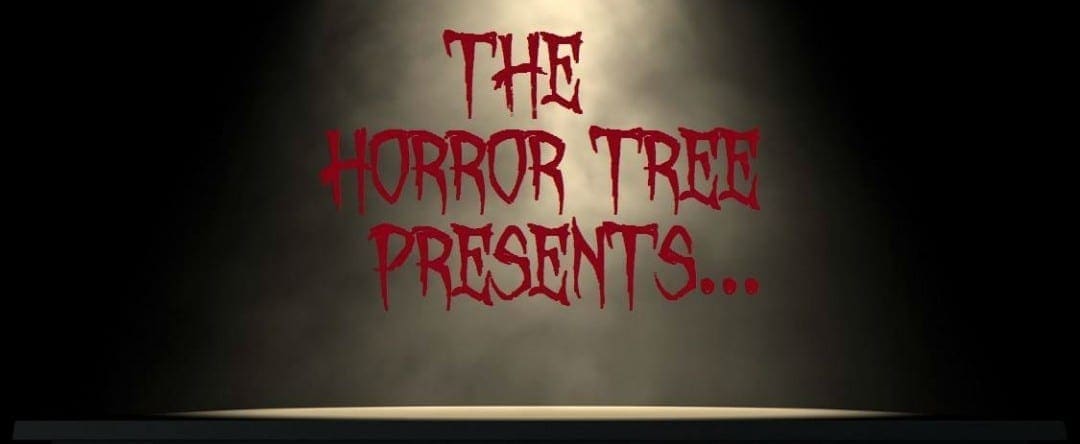
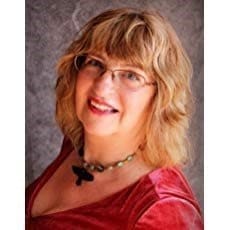 Claire: Hey Peggy, how are you? What are you working on at the moment?
Claire: Hey Peggy, how are you? What are you working on at the moment?
Peggy: I am fine and thank you for asking. I hope you are doing well, too.
What I’m working on – l Right now I’m completing the first draft of the sequel to my supernatural mystery-thriller, The Raven’s Daughter. After working on this project (The Summer Ravens) for over two years, I finally got down to business in hopes I can get this novel to my publisher in time for a summer release. It’s a good thing she’s patient because I’ve been under contract for this book for quite some time.
Claire: I see you aside from fiction you also write non-fiction and poetry. I do, too! Do you take a different approach to writing different things?
Peggy: Yes. I was a technical writer for many years. The difference between tech writing and poetry or prose is vastly different. Same with prose vs poetry. Even though there is cross-over between prose and poetry, the two forms require a different skill set, same with the differences between non-fiction and fiction.
Non-fiction is, of course, more cerebral and requires a more complicated level of research and precise language than in novel writing. Poetry is a creative free-for-all but uses more concise language than in prose writing, generally relying on fewer and more carefully chosen words to make its impact. Technical writing is sparse and exact, with lots of white space on the page, and relies on an economy of words, short, precise sentences with bullet points and sometimes diagrams. To reiterate, all forms of writing besides novel and short story form are generally more concise, use fewer words to convey meaning, and although there is cross-over, all require a different author mindset, and sometimes as mentioned (such as in technical writing, journalism, or copywriting) require completely different skills.
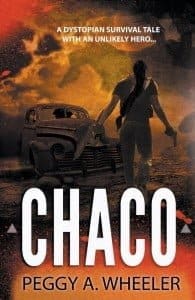 Claire: Tell me about your books. Let’s start with ‘Chaco.’ Where did your inspiration come from? Have you always been interested in writing a dystopian disaster novel?
Claire: Tell me about your books. Let’s start with ‘Chaco.’ Where did your inspiration come from? Have you always been interested in writing a dystopian disaster novel?
Peggy: I visited my sister-in-law in 2012, and while there I picked up a printed copy of National Geographic. While thumbing through the pages, an article on The Carrington Event caught my attention. In 1859, two British amateur astronomers, one named Carrington, observed independently a series of Class X Coronal Mass Ejections (a type of solar storm, also known as CMEs) on the surface of the sun.
The CMEs hit Earth directly creating all kinds of havoc, knocking out telegraph service throughout the entire northern hemisphere for months. Spontaneous fires erupted over the surface of the planet. Telegraph operators in a few cases were able to communicate without any connection, as though the Earth itself acted as a huge battery. The CME generated Northern Lights observed as far south as Colorado where hunters sleeping in their tents thought it was morning because it was so light out, got up to make breakfast – it was the middle of the night.
Right away I began research on what would happen if The Carrington Event occurred today. What I found was terrifying and intriguing, and right away I began to formulate a post-apocalyptic adventure story, named after the protagonist, CHACO.
I wanted an unlikely hero, so I chose a young Salvadoran living and working undocumented in California — that he was a university professor and astrophysicist in El Salvador, but is in hiding after landing on a death list in El Salvador because he fought on the wrong side of a U.S. backed coup, all play an essential role in how the story and the characters come together.
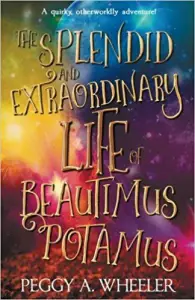 Claire: ‘The Splendid and Extraordinary Life of Beautimus Potamus’ seems completely different from ‘Chaco.’ It doesn’t even seem like it was written by the same person! Tell me about the book. Where did your inspiration come from?
Claire: ‘The Splendid and Extraordinary Life of Beautimus Potamus’ seems completely different from ‘Chaco.’ It doesn’t even seem like it was written by the same person! Tell me about the book. Where did your inspiration come from?
Peggy: In the last year of my mother’s life, she suffered from dementia and had gone blind from macular degeneration. She was bedridden and couldn’t even feed herself, and I was not equipped or trained to be a full-time care-taker, plus my husband and I lived in a small house with no accommodations for a wheelchair even if we’d had an extra bedroom. I found a long-term facility for her only a little over a mile from my home. Every day I’d visit her and read to her. I came up with an idea to write a story for her, and that story became a book, and that book was The Splendid and Extraordinary Life of Beautimus Potamus.
On the day I read the final chapter, (I read to her one chapter at a time as I finished the drafts), I thought she was sleep because her eyes were closed as she rested still and quiet on her pillows. I attempted to tip-toe out of the room, but then I heard her. She sat up straight in her bed, her eyes open, tears running down her cheeks. “That was beautiful, Peggy Ann.” Beautimus Potamus was the last thing I’d ever read to her. Unfortunately, she didn’t live long enough to hold a published copy in her hands. I wrote the book because I thought she’d get a kick out of it, and I knew that even with her dementia she would appreciate the political references, the cultural jokes, and the satire. The book’s language, themes, and style were intentionally for her. I dedicated The Splendid and Extraordinary Life of Beautimus Potamus to her. By the way, Bea Potamus is my personal favourite book of those I’ve written.
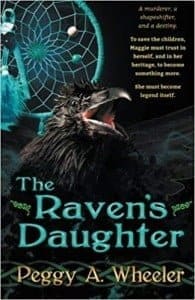 Claire: ‘The Raven’s Daughter’ seems like a cinematic novel. Where did the idea of blending myth, monster, and murder come from? Did you conduct any research for the novel?
Claire: ‘The Raven’s Daughter’ seems like a cinematic novel. Where did the idea of blending myth, monster, and murder come from? Did you conduct any research for the novel?
Peggy: I’ve always been interested in Native American and Irish culture and lore, especially since there are indigenous people in my family from several tribes, and I’m over 50% Irish. I always thought I’d build a character from the two cultures, one culture my protagonist would accept, the other she’d reject, ergo Maggie Tall Bear Sloan, half Yurok/half Irish and 100% gutsy.
I reached for months and employed sensitivity readers for the Native American parts of the books to ensure that I was respectful in my approach. The legend of the Pukkukwerek (sometimes spelt differently) is a Yurok legend about a woman who shapeshifts into a raven, so I made Maggie a shapeshifter, too, although she denies it, as she does her Yurok culture, and tries to excuse away her shifting. Maggie is a cantankerous, sometimes unlikable character, who is also compassionate and loves deeply, but she is a confirmed sceptic and does not believe in anything supernatural.
I set out to write a murder mystery and included horror, supernatural, and mythological components as a natural part of the process that grew out of the story.
Claire: The book was also a finalist in the CCC Great Novel Contest. That’s amazing! What was it like being a finalist? Did that impact your writing career in any way?
Peggy: The CCC Great Novel Contest is a small, regional contest. It is a juried contest, not a confirmation of popularity, as in “vote for my book, friends.” An actual panel of judges, mostly academic, presided over the contest and selected winners and finalists, and I believe that makes a difference. I’m proud that my debut novel made it to the short list, and I’m glad my name is associated with the contest because I think contests and awards are great for getting one’s name out there even in a small way, and they help to validate the author’s work.
Claire: You’ve been featured in a few anthologies. Do you prefer writing novels or short fiction?
Peggy: I enjoy both, but I consider myself a novelist.
Claire: Do you find it difficult to write different genres?
Peggy: No. It’s more fun for me to write in different genres and voices. One good friend of mine, a successful writer who has had her books made into movies, once told me to “Pick a planet and land on it.” My publisher thinks it’s more difficult for an author who writes in different genres to gain a readership because some readers will love Raven’s Daughter but may detest allegorical satirical fantasy, such as Beautimus Potamus. Others may love CHACO but cannot stand the character of Maggie Tall Bear Sloan.
The idea is to write in one genre, so you build a brand. If someone is a huge Stephen King fan, for example, and pick up his latest novel, but it turns out to be a steamy bodice-busting romance, or a cute, cosy mystery rather than horror, they may be a wee bit disappointed, as in to the point of lighting the book on fire and demanding a refund.
In a way, that’s already happened to me. A reader was enchanted with The Raven’s Daughter hated Beautimus Potamus and was detailed about her disappointment in the review she gave me, because despite having read the book blurb for Lady Bea, what she really wanted was more Raven’s Daughter.
I, however, am having a blast trying different genres on for size. Every new genre is an intriguing challenge for me, and because of that, I probably will write mash-ups as I do now, or cross-genre, for a while. I am even pondering trying my hand at literary fiction. One day, I may settle on a single genre. Right now, I’m tending toward the supernatural mystery-thriller, but that’s probably because I’m working on one.
Claire: I see you have a B.A. in English Literature and an M.A. in English with a Creative Writing. How have these degrees helped your writing?
Peggy: No education is ever wasted. Some will say differently, but even if I’d studied architecture, biology, or history instead of literature and creative writing, I would still benefit from my formal education, and my writing benefits, too. There are life-skills one learns as a successful university student — successful meaning you complete your courses, and graduate with a good GPA — too, that help with being a writer. These include:
- Following directions (What about following submission or query instructions that so many writers gloss over?)
- Stick-to-itiveness/perseverance (You don’t give up until you’ve got that diploma in your hand, just like you don’t give up until your story is finished and you have done your best to get it published)
- Discipline (Gotta get those papers, research, and reading in on time, or you don’t pass. Better meet rewrites and editing deadlines, or you lose contracts)
- How to research and how to write an academic paper (Helps in all kinds of writing)
- Willingness to invest in one’s passion and achievements (Costs money, energy, and time to be successful in anything)
- Communication (You better know how to communicate well and to use good vocabulary if you are to earn a degree or to pitch a book to an agent)
I still take classes in writing and marketing. Right now, I’m on Lesson Thirteen of a class from The Great Courses on writing elegant compound sentences, and I’m already applying what I’ve learned. I ordered another on script writing and will be ordering more. I never quit learning, and every class I take directly related to writing or not, helps me grow as an author. The more knowledge of the world, in addition to growing knowledge and skill in my craft, the better.
Claire: I read your blog post ‘Never Too Old To Write’ and think it’s great! Do you think you you’d be a different writer if you started earlier on? Are you happy to be published later in life?
Peggy: I am sure my writing at age 20 would be far different than it is at nearly age 65. I’ve accumulated so many more life experiences and have acquired so much more knowledge over the last forty years. My writing skills have also markedly improved since I was much younger.
The thing about being a writer is you are never too young or too old to start. The young woman who wrote The Outsiders first published in 1976, one of the most popular YA books of all time, S.E. Hinton, was 15 when she penned that book. My friend, Ray Straight, turns 95 in May. He is just now subbing his first novel. I was 61 when my first novel debuted from Dragon Moon Press.
Claire: You’ve had the wonderful opportunity to study with Robert Pinsky. I’m jealous! What was it like working with such a celebrated poet? How did it assist your writing?
Peggy: Robert Pinsky is the most generous-hearted, most genuinely caring professor I ever studied under. He was a guest prof at UCLA when I was an undergrad. He only wanted twelve students, and only graduate students, in his class, but he liked a poem I submitted and thought it had “something” so he made an exception for which I will always be grateful.
Of course, learning about how to write anything better, whether it be poetry or business letters, is helpful in any writing we do. Robert Pinsky is a master at using beautiful language, and I did pay attention in class, so, yes, I do regularly apply what I learned from him at the seminar many years ago.
Claire: Are you reading anything at the moment?
Peggy: I’ve almost finished reading The Master Butchers Singing Club, a 2003 novel from Louise Erdrich. I just finished re-reading Octavia Butler’s, Kindred, and a few days ago I read for the first time, Delta Lady, the memoirs of Rita Coolidge.
Claire: What’s next for you?
Peggy: I’ve a third in the series planned for The Raven’s Daughter – this one will be set in Ireland. I’m five chapters deep into the sequel to CHACO. Soon, I have to decide if I want to write more in The Raven’s Daughter series or leave it as a trilogy and continue with the sequel to CHACO or move onto something else entirely.
I’ve several books in progress, one will be a short non-fic guide to finding literary agents (I’ve had three agents, and even helped with the slush pile for one of them) and small publishers; another is a literary ghost story set in the Beat era in San Francisco, narrated by the ghost of an old Russian woman. I’ve started a mystery that takes place completely underground among survivalists living in a series of bunkers connected by tunnels, and a speculative novel for a New Adult audience about a social media catfish who turns out to be, well, I don’t want to spoil it. I’ve a couple of others on the back burner in different states of completion, too.
My goal is to get out one good book each year and to complete and submit a few short stories or non-fic pieces each year to anthologies in hopes that one or two may get picked up. Most recently, I’m in an anthology, Paranormal Encounters, that just came out from Anubis Press about true supernatural encounters and experiences.
Claire: Finally – your house is on fire, and you can only save one book. Which book is it and why?
Peggy: 100 Years of Solitude by Gabriel Garcia Marquez. I’m a huge fan of magical realism, another genre I want to try my hand at, and 100 Years was the first time I’d encountered Marquez or the genre he’s known to have had a huge hand in inventing – it’s said he coined the term “magical realism.” I was absolutely enchanted by the premise and the language, and reading the book made a huge impact on my decision to write.
Thank you for inviting me to participate in the interview. It’s been fun!











